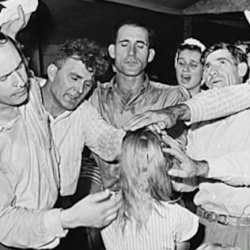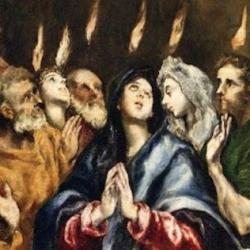David Martin (Tongues of Fire, 165) cites a study of Mexican Pentecostal healing that highlights the anti-modernity of the Pentecostal movement. Like black culture and partly because of it, Pentecostalism is characterized by “an emphasis on the spoken as much as the written; the ‘telling’ of faith and giving of testimony through stories; the extension of participation to all, including women; the inclusion of dreams and visions in personal and public worship; and ‘an understand of the body-mind relationship that is informed by experiences of correspondence between body and mind,’ most strikingly through healing in constant prayer” (quoting a 1984 PhD dissertation by Murl Owen Dirksen). Further, Pentecostalism “attempts to unify individual and community by affirming that healing is a public and communal activity.”
Martin cites a summary of Pentecostal emphases from Walter Hollenweger that says much the same: “For them . . . the medium of communication is, just as in biblical times, not the definition but the description, not the statement but the story, not the doctrine but the testimony, not the book but the parable, not a systematic theology but a song, not the treatise but the television programme, not the articulation of concepts but the celebration of banquets.”
In all this, Pentecostalism has been poised to catch the cultural shift known as postmodernism. One wonders how much Pentecostalism helped to produce the wave it rides.














